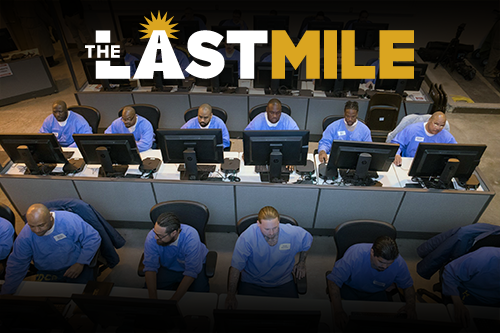Episode 83: Chief Royal Ramey
- 1:09:12
- May 12, 2025
The Truth About Fire Camps and the Fight For Fair Pay with Chief Royal Ramey
Chief Royal Ramey is the Co-Founder and Chief Executive of the Forestry and Fire Recruitment Program (FFRP), an organization dedicated to creating career pathways in wildland firefighting for formerly incarcerated individuals and those from marginalized communities. A former incarcerated firefighter himself, Ramey served time at Bautista Conservation Camp, where he discovered both the physical rigor and transformative potential of fire camp work. Since founding FFRP alongside fellow fire camp alum Brandon Smith, Ramey has helped transition over 275 individuals into careers in the forestry and fire sectors, including more than 50 into roles with Cal Fire. Under his leadership, FFRP also launched the Buffalo Hand Crew, honoring the legacy of the Buffalo Soldiers while providing real-world fire prevention and suppression services.
“There is no limit to what we can become. We can be more than just formerly incarcerated. We can be wildland firefighters, yes—but we can also be executive directors, entrepreneurs, mentors, and leaders in our communities. I’ve seen it with my own eyes. Just because you spent time behind bars doesn’t mean your ideas aren’t brilliant or your leadership doesn’t matter. We’ve already proven we can survive—now it’s about showing we can thrive.”
In this deeply personal and eye-opening interview, Ramey walks host Tara Trask through his journey from incarceration to professional firefighter, sharing powerful stories of growth, hardship, and redemption. He describes how fire camp taught him emotional resilience, teamwork, and leadership—skills that ultimately became the foundation of his post-incarceration career. Ramey breaks down the structural and legislative barriers that prevent incarcerated firefighters from transitioning into paid careers upon release, highlighting his advocacy around bills like AB 1380 and AB 247, which aim to certify and fairly compensate incarcerated workers. The conversation also explores race, identity, and the emotional toll of navigating predominantly white firefighting spaces, as well as the cultural shift needed to recognize the value formerly incarcerated people bring to public service roles.
Episode Outline
(00:00:00) Introduction of Chief Royal Ramey and the impact of wildfires in Los Angeles
(00:02:45) Founding of the Forestry and Fire Recruitment Program (FFRP) and its mission
(00:06:00) Fire camp as a pathway from incarceration to public service
(00:11:00) The physical and emotional challenges of fire camp and personal transformation
(00:16:30) Lessons in teamwork, race, and emotional growth during incarceration
(00:22:00) Real risks and frontline duties of incarcerated wildland firefighters
(00:24:30) Launching the Buffalo Hand Crew and honoring Black firefighting history
(00:27:00) Struggles post-release: stigma, certification barriers, and exclusion from fire careers
(00:33:00) The case for hiring formerly incarcerated firefighters and redefining “best for the job”
(00:39:00) Controversy over $1/hour wages and proposed legislation for fair pay
(00:44:30) Navigating racial dynamics, culture shock, and code-switching in the fire industry
(00:52:00) Why legislation, civic engagement, and long-term reinvestment matter


